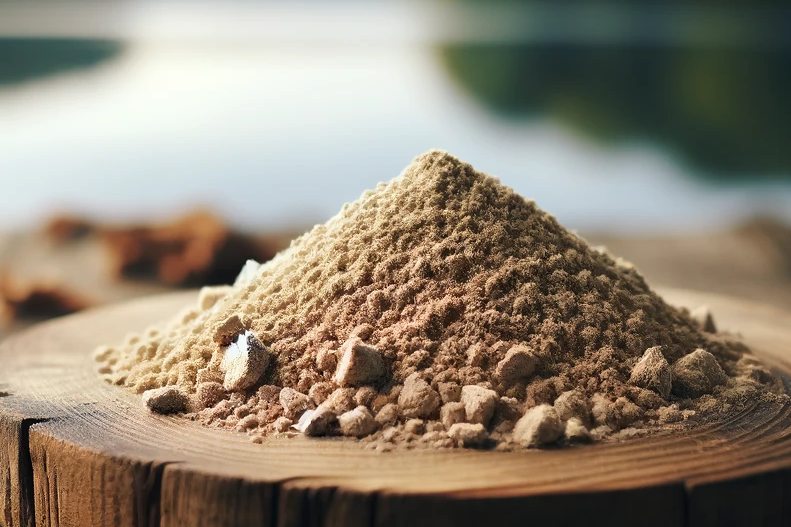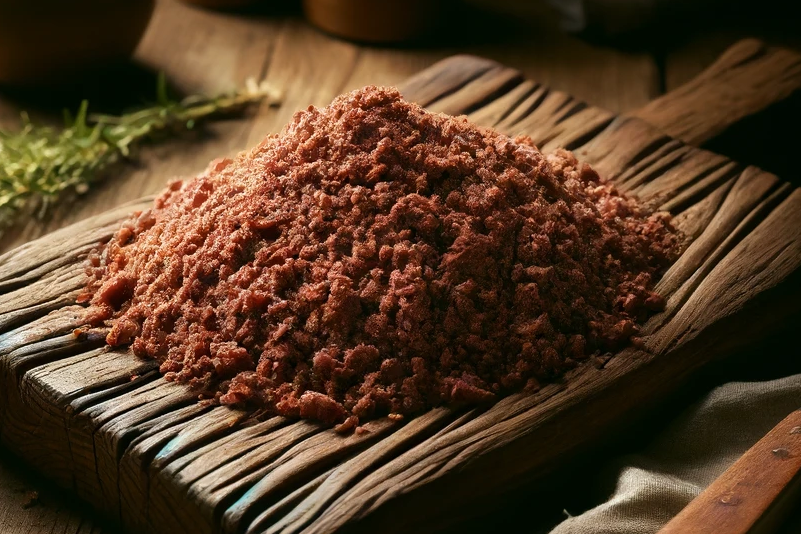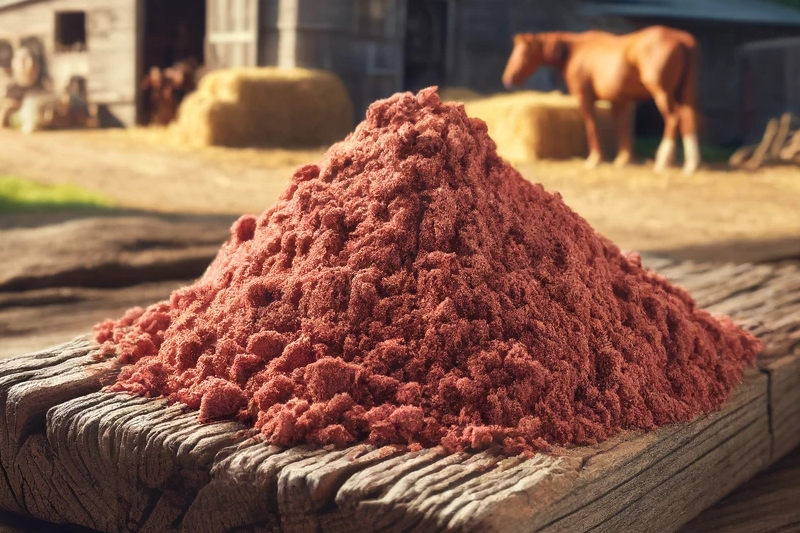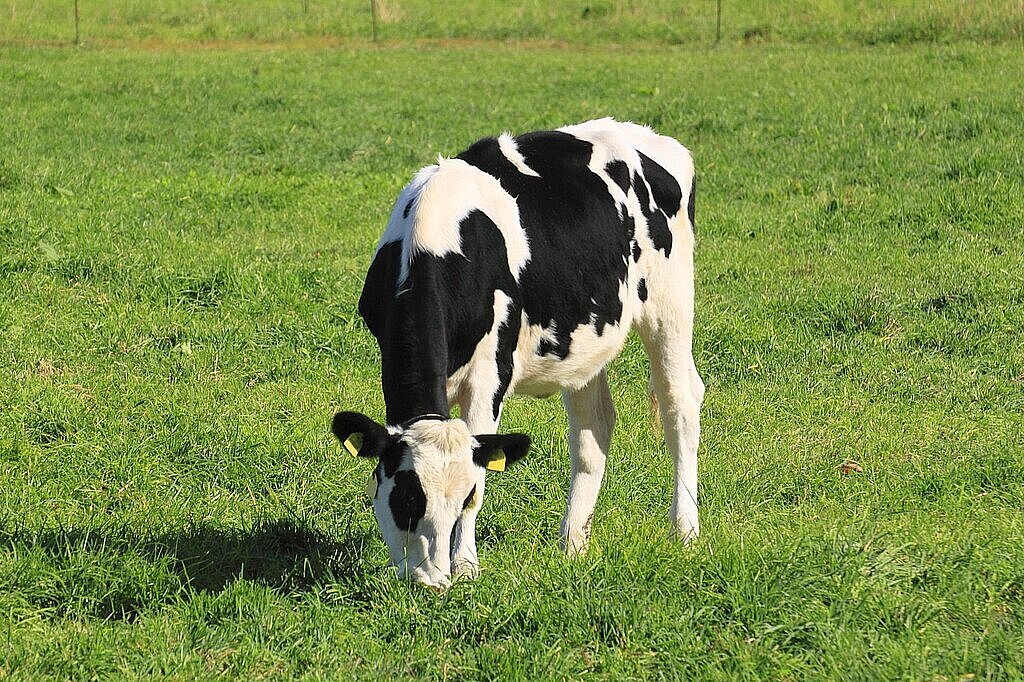Goat semolina
The search for healthy, nutritious and at the same time innovative food ingredients for our dogs is an ongoing task for every responsible dog owner. In this context, a rather unconventional candidate appears on the dog food stage: Goat semolina. This article sheds light on what goat semolina actually is and examines the potential benefits and drawbacks of this particular ingredient in the diet of our four-legged friends.
What is goat semolina?
Goat semolina, not to be confused with wheat or corn semolina, is a by-product obtained from the processing of goat's milk, particularly in cheese production. It consists of fine, granulated particles that remain after the liquid milk components have been removed. Although it is primarily used in human nutrition, goat semolina is attracting increasing attention as an innovative ingredient in dog food.
Advantages of goat semolina in dog nutrition
High quality protein source
Goat semolina is rich in protein, which plays an essential role in a dog's diet. Proteins contribute to muscle building, tissue repair and the production of important hormones and enzymes. The proteins contained in goat semolina are of high quality and can be a good supplement to a dog's daily protein supply.
Easily digestible
Compared to other cereals and semolina types, goat semolina is characterized by its high digestibility. This makes it a suitable ingredient for dogs with sensitive digestive systems or for older dogs whose digestive capacity may have decreased.
Rich in vitamins and minerals
Goat semolina is a good source of B vitamins, which play an important role in a dog's energy metabolism, as well as minerals such as calcium, phosphorus and magnesium, which are essential for strong bones and teeth and healthy nerve function.
Hypoallergenic potential
For dogs that are allergic to certain grains such as wheat, goat semolina can be an excellent alternative. Its unique composition and origin minimize the risk of food allergies and intolerances.
Possible disadvantages and considerations
Carbohydrate content
Despite its benefits, goat semolina contains a significant amount of carbohydrates. For dogs that are prone to obesity or suffer from diabetes, the use of goat semolina in their diet should be carefully considered.
Availability and price
As goat semolina is not as widely available as other grains, it can be more difficult and potentially more expensive to source. This could limit its regular inclusion in the dog's diet.
Nutritional balance
As with any supplement to a dog's diet, care must be taken to ensure that the introduction of goat semolina does not lead to an imbalance in nutrient intake. A balanced diet containing all the necessary vitamins, minerals and macronutrients should always take priority.
Goat semolina is an interesting and potentially valuable addition to our best friend's diet. Its benefits, especially in terms of digestibility, protein quality and hypoallergenic potential, make it an option worth considering for dog owners looking for alternative food ingredients. However, potential drawbacks such as the high carbohydrate content and the need for a balanced nutrient intake should not be overlooked. As with any dietary change, it is advisable to introduce goat semolina into the dog's diet slowly and monitor it carefully to ensure it meets the dog's individual needs and health.
If you notice any signs of hypersensitivity or poisoning in your dog, you should see your vet immediately. We are not a substitute for a vet, but we try to be as accurate as possible. Every dog reacts differently and we recommend you get a second opinion or consult your vet if in doubt.
Stay healthy and take good care of your four-legged friend!😊
Similar to Goat semolina
Duck semolina, often also known as duck meal, is a by-product of duck meat production. It is made from the solid components of duck meat, which are obtained by drying and then grinding after the...
Lamb semolina, also known as lamb meal, is a by-product of meat processing. It is made by drying fresh lamb meat and sometimes bones and grinding it into a fine powder. This powder is rich in...
Horse semolina, often a by-product of horse meat processing, consists of finely ground particles of horse meat and bones. Unlike the classic wheat semolina that we are familiar with from human...
Beef semolina has a number of positive properties that can make it a useful ingredient in dog food. On the one hand, it provides your dog with energy and supports muscle building, as it contains a...



